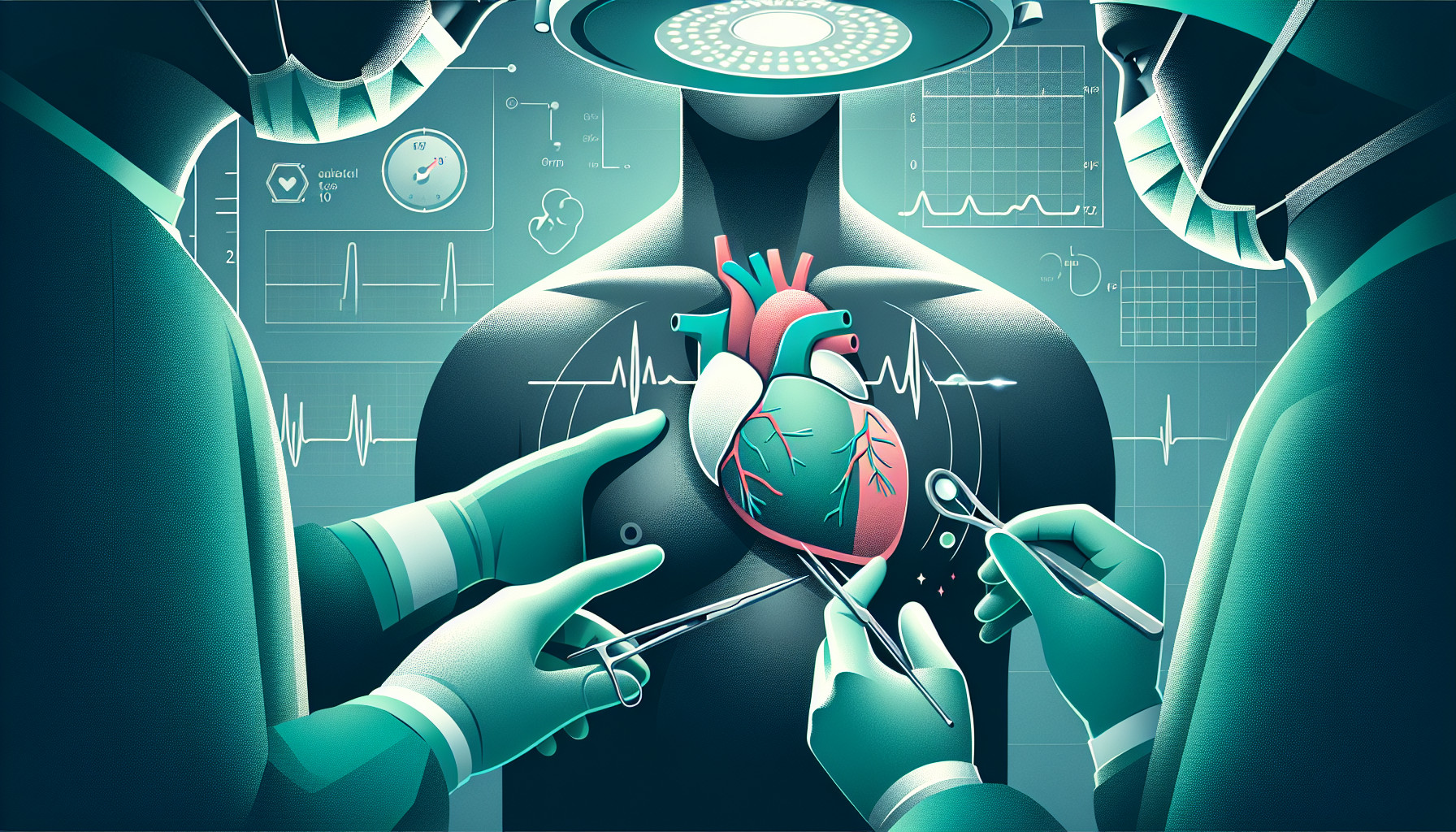Our Summary
This research paper talks about various diseases that can cause damage to the mitral valve, a part of the heart. The mitral valve is made up of several components, and different diseases can affect different parts of it. This can lead to issues like the valve becoming too narrow or not closing properly.
The paper also discusses recent developments in treating these issues. Traditionally, open-heart surgery was used to repair or replace the damaged valve. However, now, there are less invasive methods available. These include making the valve opening smaller, clipping parts of the valve, or placing artificial valves through a small incision.
Understanding the specific damage caused by each disease is important to choose the best treatment method. The paper discusses several diseases, including endocarditis, floppy valve disease, mitral regurgitation, mitral stenosis, mitral valve prolapse, myxoid degeneration, myxomatous degeneration, and rheumatic heart disease.
FAQs
- What are the different pathologic entities that cause structural abnormalities of the mitral valve?
- What are the different approaches to address mitral valve dysfunction?
- How do understanding the structural abnormalities help in choosing the optimal therapeutic intervention for mitral valve disease?
Doctor’s Tip
One helpful tip a doctor might tell a patient about mitral valve replacement is to follow a healthy lifestyle, including regular exercise and a balanced diet, to promote overall heart health and reduce the risk of complications after surgery. It is also important to follow your doctor’s post-operative instructions and attend all follow-up appointments to monitor your progress and ensure optimal recovery.
Suitable For
Patients who are typically recommended mitral valve replacement include those with severe mitral valve stenosis or regurgitation that is causing symptoms such as shortness of breath, fatigue, or chest pain. Other indications for mitral valve replacement may include severe damage to the mitral valve due to conditions such as endocarditis, rheumatic heart disease, or myxomatous degeneration. Additionally, patients with mitral valve prolapse or floppy valve disease that is not responsive to other treatments may also be candidates for mitral valve replacement. Ultimately, the decision to recommend mitral valve replacement will depend on the specific characteristics and severity of the patient’s mitral valve disease.
Timeline
Before mitral valve replacement:
- Patient experiences symptoms of mitral valve disease such as shortness of breath, fatigue, chest pain, and palpitations.
- Patient undergoes diagnostic tests such as echocardiogram, MRI, and cardiac catheterization to confirm the diagnosis and assess the severity of the disease.
- Patient may undergo medical management to control symptoms and delay the progression of the disease.
- If the disease progresses and becomes severe, the patient is evaluated for mitral valve replacement surgery.
After mitral valve replacement:
- Patient undergoes mitral valve replacement surgery, either through open-chest surgery or less invasive percutaneous approaches.
- Patient is closely monitored in the hospital post-surgery for any complications and to ensure proper healing.
- Patient undergoes cardiac rehabilitation to regain strength and endurance.
- Patient is prescribed medications to manage symptoms and prevent complications.
- Patient follows up with their healthcare provider regularly for monitoring of the new valve and overall cardiac health.
What to Ask Your Doctor
- What is the reason for needing a mitral valve replacement?
- What are the potential risks and complications associated with the surgery?
- What is the expected recovery time after the surgery?
- Will I need to take any medication after the surgery?
- Are there any lifestyle changes I should make after the surgery?
- How long will the replacement valve last?
- What follow-up appointments will be necessary after the surgery?
- What symptoms should I watch for that may indicate a problem with the replacement valve?
- Are there any restrictions on physical activity or diet after the surgery?
- What are the alternatives to mitral valve replacement, and why was this option chosen for me?
Reference
Authors: Fishbein GA, Fishbein MC. Journal: Curr Cardiol Rep. 2019 May 23;21(7):61. doi: 10.1007/s11886-019-1145-5. PMID: 31123911
